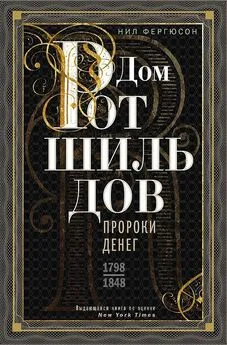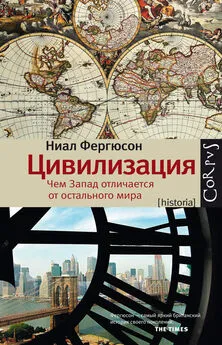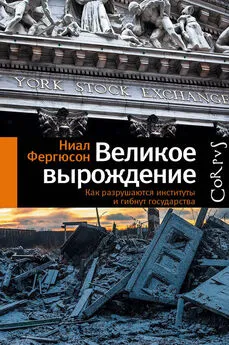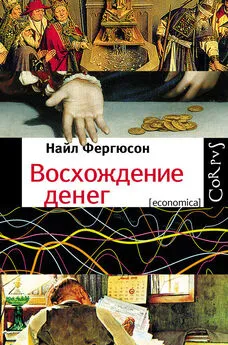Ниал Фергюсон - Виртуальная история: альтернативы и предположения
- Название:Виртуальная история: альтернативы и предположения
- Автор:
- Жанр:
- Издательство:Литагент Corpus
- Год:2019
- Город:Москва
- ISBN:978-5-17-109115-6
- Рейтинг:
- Избранное:Добавить в избранное
-
Отзывы:
-
Ваша оценка:
Ниал Фергюсон - Виртуальная история: альтернативы и предположения краткое содержание
Виртуальная история: альтернативы и предположения - читать онлайн бесплатно ознакомительный отрывок
Интервал:
Закладка:
105
Roth G. and Schluchter W. Max Weber’s Vision of History. Berkeley, 1979.
106
Weber M. The Protestant Ethic and the Spirit of Capitalism. London, 1985.
107
Ibid. Pp. 91, 183.
108
Bloch M. The Historian’s Craft. Manchester, 1992.
109
Braudel F. On History. London, 1980. P. 76.
110
“[История] не может быть совершенно и абсолютно истинной, поскольку, чтобы быть совершенно и абсолютно истинной, она должна фиксировать все мельчайшие детали мельчайших операций… [Однако], если бы история писалась именно так, Бодлианская библиотека не вместила бы и описания событий одной недели”. Цит. по: Stern Fr. (Ed.). The Varieties of History from Voltaire to the Present. London, 1970. P. 76.
111
Braudel F. On History. London, 1980. P. 51; Smith D. The Rise of Historical Sociology. Cambridge, 1991. Pp. 104f. О немецких корнях этого географического или экологического детерминизма см. в работе: Roth G. and Schluchter W. Max Weber’s Vision of History. Berkeley, 1979. P. 169f. Само собой, подобным образом мыслил и Монтескье.
112
Smith D. The Rise of Historical Sociology. Cambridge, 1991. P. 114.
113
Braudel F. The Mediterranean and the Mediterranean World in the Age of Philip II / Trans. by S. Reynolds. London, 1972, 1973. Трехуровневая модель, очевидно, была в известной степени позаимствована у Мейнеке; в случае с предложенными Люсьеном Февром тремя факторами исторической каузальности – случайностью, необходимостью и идеей – заимствование более очевидно.
114
Ibid. Vol. II. P. 901.
115
Braudel F. On History. London, 1980. P. 27f.
116
Цит. по: Roth G. and Schluchter W. Max Weber’s Vision of History. Berkeley, 1979. P. 176.
117
Цит. по: Smith D. The Rise of Historical Sociology. Cambridge, 1991. P. 111.
118
Ibid . P. 120.
119
Braudel F. On History. London, 1980. P. 12.
120
Ibid. P. 72.
121
Bloch M. The Historian’s Craft. Manchester, 1992. P. xxi.
122
Ibid. P. 162.
123
Историк-социолог Александр Гершенкрон применял эту модель не только к Германии, но и к другим европейским странам.
124
Blackbourn D. and Eley G. The Peculiarities of German History. Oxford, 1984.
125
Немецкий историк не отважился бы спросить, что случилось бы с немецкой историей, если бы Гитлер не пришел к власти, но этот вопрос обсуждается в работе: Turner H. A. Geissel des Jahrhunderts: Hitler und seine Hinterlassenschaft. Berlin, 1989.
126
Stone L. The Causes of the English Revolution. London, 1986. P. 58.
127
Kennedy P. The Rise and Fall of the Great Powers: Economic Change and Military Conflict from 1500 to 2000. London, 1989. Особенно Pp. xvi, xxiv – xxv.
128
Wallerstein I. The Modern World System. 3 vols. New York/ London, 1974–1989; Mann M. The Sources of Social Power. 2 vols. Cambridge, 1986; Grew R. and Bien D. D. (Eds). Crises of Political Development and the United States. Princeton, 1978; Unger R. Plasticity into Power: Comparative-Historical Studies on the Institutional Conditions of Economic and Military Success. Cambridge, 1987.
129
Woodcock A. and Davis M. Catastrophe Theory: A Revolutionary Way of Understanding How Things Change. London, 1991. В особенности pp. 120–146. В этой книге особенно примечателен трехмерный график, изображающий упадок и крах Римской империи (p. 138). Более ценная попытка связать современные представления о естественном отборе с культурным развитием была сделана в работе Runciman W. G. A Treatise on Social Theory. II: Substantive Social Theory. Cambridge, 1989. Особенно p. 449.
130
Хороший пример условно фрейдистского подхода приводится в работе: Theweleit K. Male Fantasies. 2 vols. Cambridge, 1987, 1989.
131
Хотя вполне вероятно, что марксист, применяя теорию игр, мог бы сделать то же самое с классами.
132
Davis N. Z. The Possibilities of the Past // Rabb T. K. and Rotberg R. I. (Eds). The New History: The 1980 s and Beyond. Princeton, 1982. P. 267–277.
133
Geertz C. Local Knowledge: Further Essays in Interpretive Anthropology. London, 1993.
134
Bouwsma W. J. From the History of Ideas to the History of Meaning // Rabb T. K. and Rotberg R. I. (Eds). The New History: The 1980 s and Beyond. Princeton, 1982. P. 279–293.
135
См.: Levi G. Microhistory // Burke P. (Ed.). New Perspectives on Historical Writing. Cambridge, 1991. P. 93–113.
136
См. наиболее свежую и амбициозную работу: Schama S. Landscape and Memory. London, 1995.
137
Thomas K. Religion and the Decline of Magic: Studies in Popular Belief in Sixteenth and Seventeenth Century England. London, 1971.
138
Abrams P. History, Sociology, Historical Sociology // Past and Present 87 (1980). P. 3–16. См. также: Burke P. The History of Events and the Revival of Narrative // Burke P. (Ed.). New Perspectives on Historical Writing. Cambridge, 1991. P. 233–248.
139
Mink L. O. The Autonomy of Historical Understanding // Dray W. (Ed.). Philosophical Analysis and History. New York/London, 1966. P. 182, 189.
140
White H. The Historical Text as Literary Artefact // Canary R. H., Kozicki H. (Eds.). The Writing of History: Literary Form and Historical Understanding. Madison, 1978. См. также: Jameson Fr. The Political Consciousness: Narrative as a Socially Symbolic Act. London, 1981; Ricoeur P. Time and Narrative / Trans. by K. McLaughlin and D. Pellauer. London, 1984–1988.
141
Barzun J. Clio and the Doctors: Psycho-History, Quanto-History and History. Chicago, 1974. Другая сторонница традиционализма, Гертруда Химмельфарб, недавно внесла путаницу в консервативную аргументацию, объединив количественные методы новой экономической истории с субъективными методами психоистории: Himmelfarb G. The New History and the Old: Critical Essays and Reappraissals. Cambridge, Mass., 1987.
142
Barzun J. Clio and the Doctors: Psycho-History, Quanto-History and History. Chicago, 1974. Pp. 101, 123, 152f.
143
Davis N. Z. On the Lame // American Historical Review 93 (1988). P. 572–603.
144
См., например: Spiegel G. M. History, Historicism and the Social Logic of the Text in the Middle Ages // Speculum 65 (1990). P. 59–86.
145
См.: Scott J. W. History in Crisis? The Others’ Side of the Story // American Historical Review 94 (1989). P. 680–692; Joyce P. History and Postmodernism // Past and Present 133 (1991). P. 204–209. Марксистскую критику см. в работе: Harvey D. The Condition of Postmodernity: An Enquiry into the Origins of Cultural Change. Oxford, 1989.
146
Gallie W. B. Explanations in History and the Genetic Sciences // Gardiner P. (Ed.). Theories of History. Glencoe, Illinois/London, 1959. Pp. 389f.
147
Scriven M. Truisms as Grounds for Historical Explanations // Gardiner P. (Ed.). Theories of History. Glencoe, Illinois/London, 1959. Pp. 470f.
148
Amis M. Time’s Arrow or The Nature of the Offence. London, 1992.
149
Foster R. F. The Story of Ireland: An Inaugural Lecture Delivered before the University of Oxford on 1 December 1994. Oxford, 1995. P. 31.
150
Музиль Р. Человек без свойств / Пер. С. К. Апта. Москва, 1994.
151
Музиль Р. Человек без свойств / Пер. С. К. Апта. Москва, 1994.
152
Borges J. L. The Garden of Forking Paths // Borges J. L. Labyrinths: Selected Stories and Other Writings / Ed. by D. A. Yates and J. E. Irby. Harmondsworth, 1970. Pp. 50ff.
153
Borges J. L. Tlo¨n, Uqbar, Orbis Tertius // Borges J. L. Labyrinths: Selected Stories and Other Writings / Ed. by D. A. Yates and J. E. Irby. Harmondsworth, 1970. P. 37.
154
Borges J. L. The Lottery in Babylon // Borges J. L. Labyrinths: Selected Stories and Other Writings / Ed. by D. A. Yates and J. E. Irby. Harmondsworth, 1970. Pp. 59ff.
155
Mallarmé S. Igitur. Divagations. Un coup de dés / Éd. par Y. Bonnefoy. Paris, 1976.
156
Untermeyer L. (Ed.). The Road Not Taken: A Selection of Robert Frost’s Poems. New York, 1951. Pp. 270f. Пер. Г. Кружкова.
157
Scriven M. Truisms as Grounds for Historical Explanations // Gardiner P. (Ed.). Theories of History. Glencoe, Illinois/London, 1959. Pp. 470f.
158
Интервал:
Закладка:
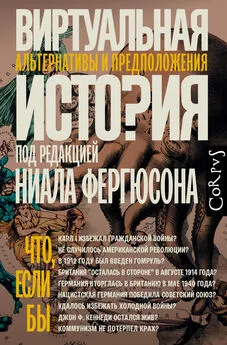
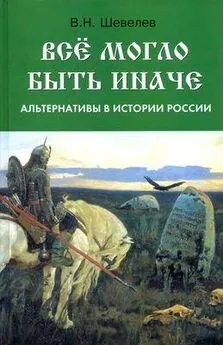

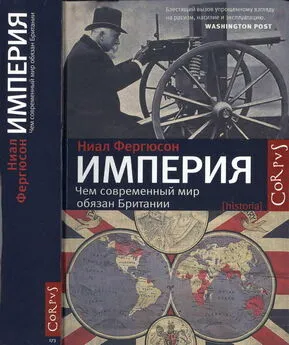
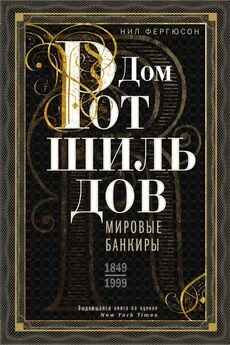
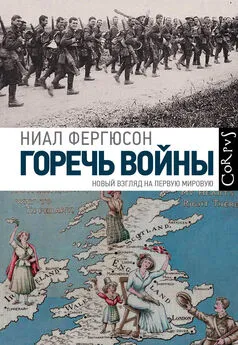
![Ниал Фергюсон - Площадь и башня [Cети и власть от масонов до Facebook]](/books/1070896/nial-fergyuson-plochad-i-bashnya-ceti-i-vlast-ot-ma.webp)
